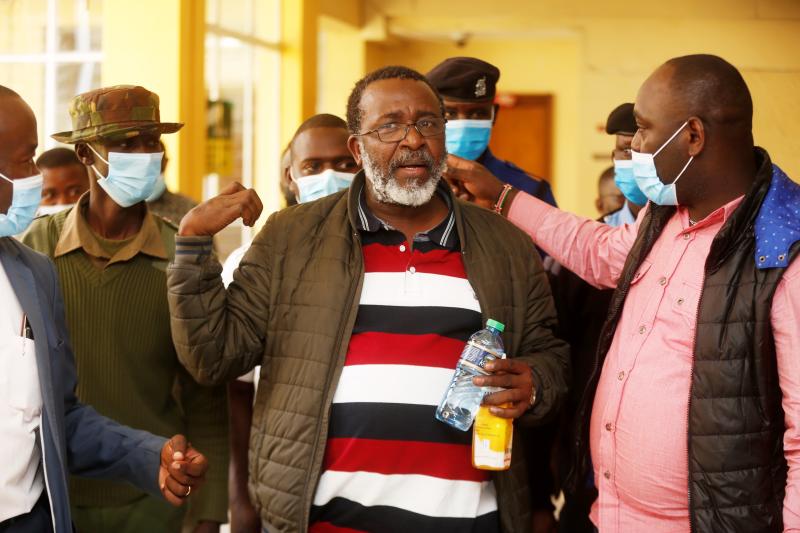×
The Standard e-Paper
Smart Minds Choose Us

Meru Senator Mithika Linturi at a Nakuru Court on January 11, 2022. He was released on Sh5 million conditional bail and ordered to report to DCI once a week. [Harun Wathari, Standard}
Even after bowing to pressure and issuing an apology over remarks he made during a rally in Eldoret last Saturday, Meru Senator Mithika Linturi is still under siege. Yesterday, he was slapped with a Sh2 million bail or Sh5 million bond to be released from police custody.







